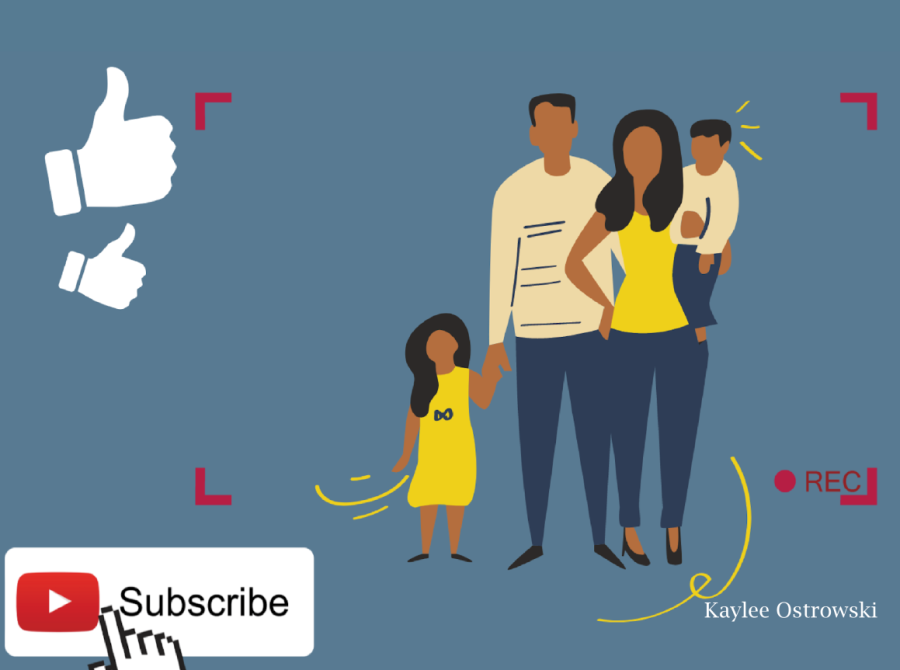Family channels not so family-friendly
Fame and fortune are two things that many people would do almost anything for, but should the want for fame and fortune go as far as exploiting one’s own child? Iconic famous children such as Shirley Temple, the Olsen Twins, Macaulay Culkin and so many more have captured the hearts of their audiences. Although adorable, these children have raised many questions as to how the industry should go about handling children growing up in the spotlight. Throughout the years, more and more laws have been made in order to protect child actors from being exploited and overworked, but the internet has provided a whole new set of questions when it comes to children and their rights. Family vloggers have been growing in popularity since the beginning of YouTube. Many family vloggers will film themselves and their children as they grow. These family channels often begin with the intention of nothing more than to share their family’s journey online, but they often snowball into the family’s entire income being reliant on how their children perform on camera. The main issues with family channels are lack of the child’s consent, invasion of privacy and the lack of laws protecting internet famous children.
To begin, children cannot ever fully consent to being in these videos. Children cannot comprehend what it truly means to be put on the internet, so even if parents do ask their children for consent before filming them, which they often do not, these children cannot really understand what exactly they are saying yes to. A young child is completely dependent on their parents’ influence as well. Children want to believe that their parents are doing what’s best for them, even when they aren’t.
Of course, not all parents have ill intentions when posting their children. Many parents post memories and important moments that their children will cherish for the rest or their lives. Other family channels also center their content around themselves as the parents rather than their children. These influencers often have the correct intentions of sharing parenting techniques on the internet in order to help others. Family channels can be done correctly if parents can respect their children’s boundaries, have their children’s consent and make sure to post content of their children that they will not find embarrassing in years to come.
Another problem with family channels is that posting a child online can invade their privacy. The internet is a dangerous place, especially for children. When a parent puts their child on the internet, that video can be viewed by just about anyone. In fact, many children who are on the internet are homeschooled to prevent them from being bullied or even stalked. From a young age, parents who decide to vlog their children are ruining any chance they will have at a “normal” life. This will make it difficult for the children to find friends in their teenage years and may even affect their relationships as adults. Many parents will also make extremely embarrassing videos of their children, just for clicks and views. Whether it is their child throwing a tantrum or a child’s first crush or date, these kinds of videos can have a massive effect on the child’s social life. Altogether, parents should ask themselves how a video will affect their children in their futures before sharing vulnerable moments of them online.
Finally, audiences need to be more aware of the lack of protective laws child internet stars have. The Coogan Law is a law that ensures 15% of a child’s earnings to be deposited in a blocked trust account. This law mainly applies to child actors in Hollywood, but does not apply to children on social media. There is no law currently in place that ensures children on the internet get any of the money that they make. Parents of these children are able to exploit them and collect all of their earnings.
So what’s the best way to encourage safer family channels? To begin, do not support family channels who are clearly oversharing their children’s lives online. Also, internet platforms like YouTube and TikTok should also be working to create guidelines to ensure children’s safety when online. Lastly, it is important to push for laws in order to make sure children can profit off of their hard work.



